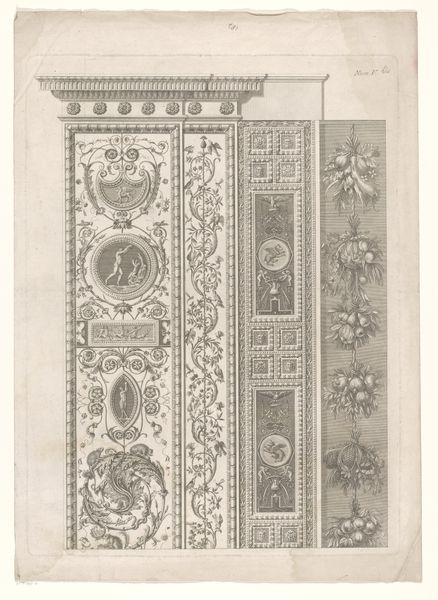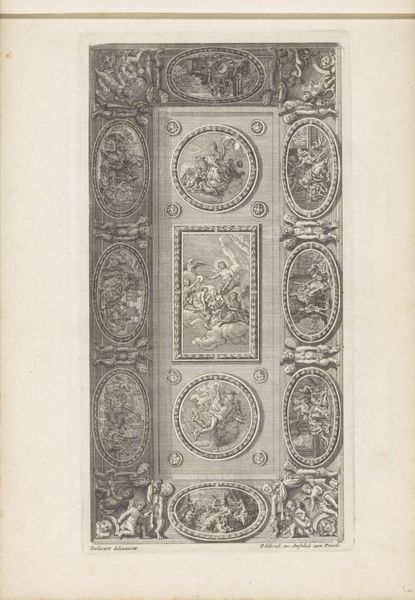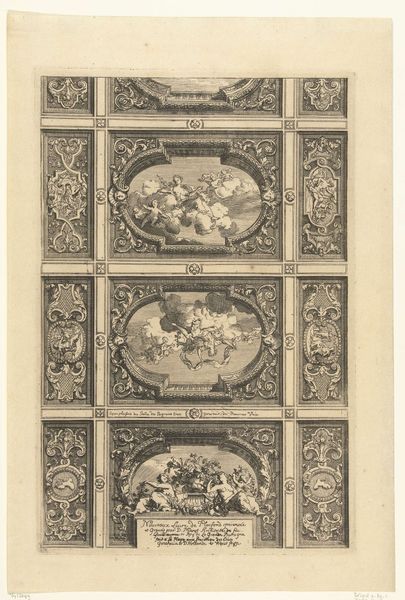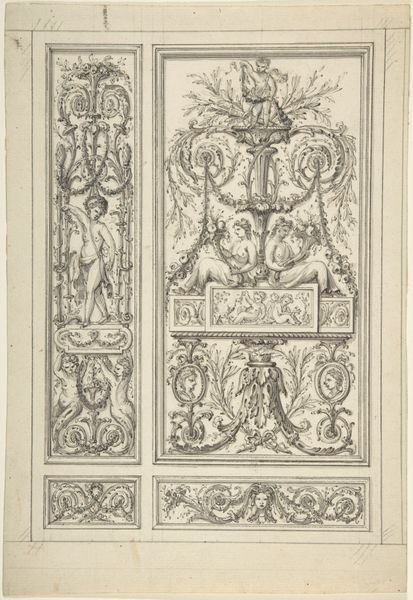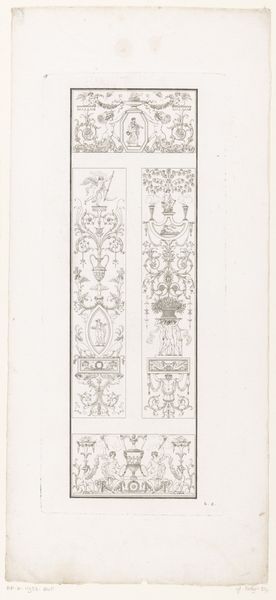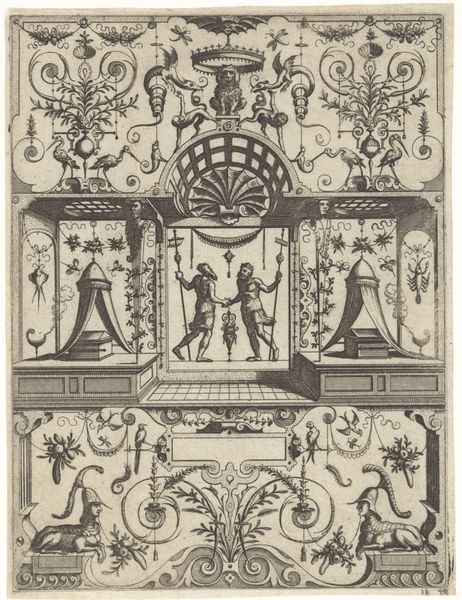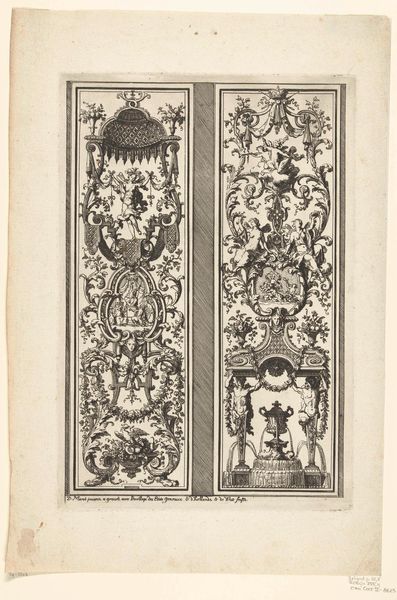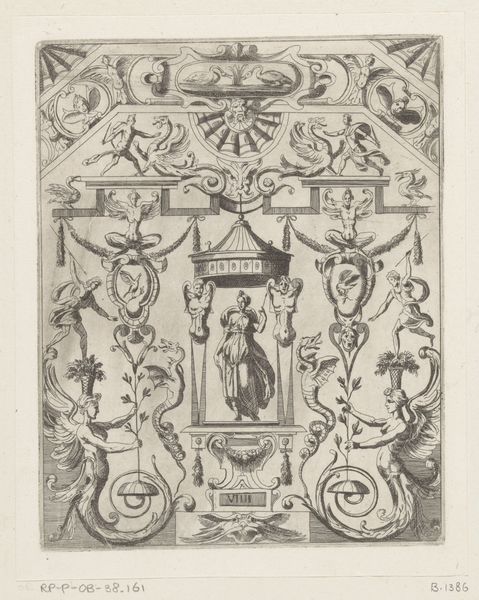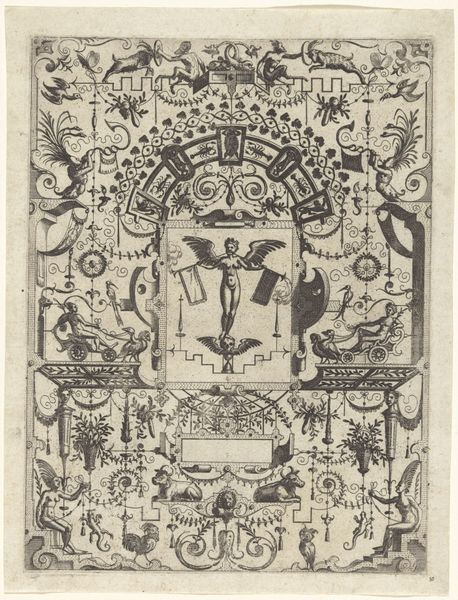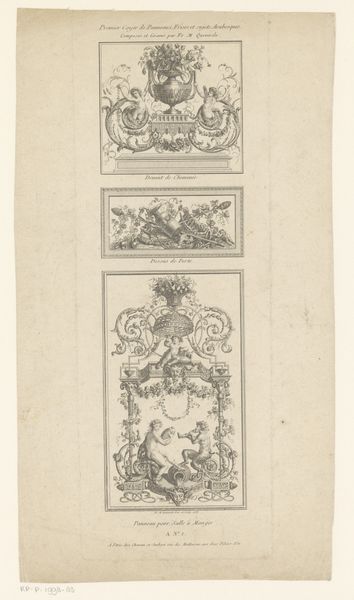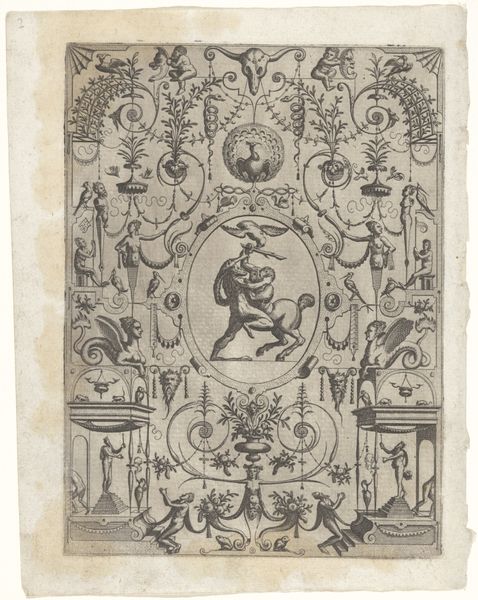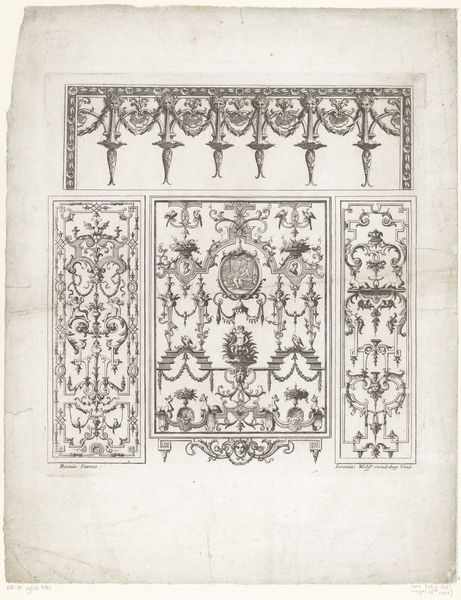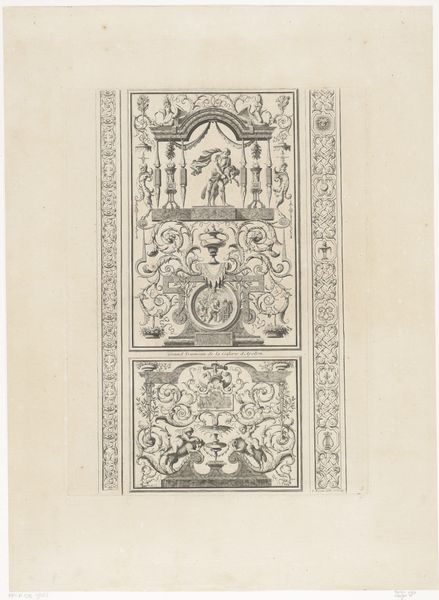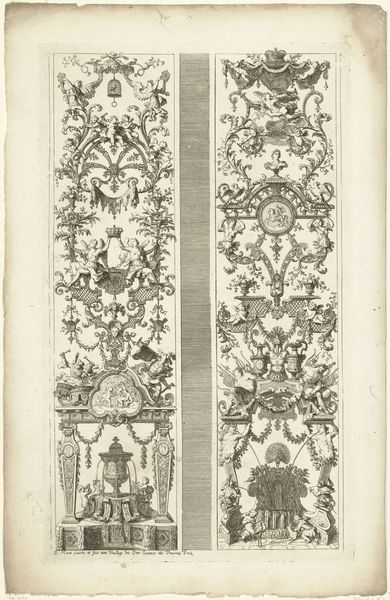
print, engraving, architecture
#
neoclacissism
#
ink paper printed
# print
#
geometric
#
line
#
history-painting
#
engraving
#
architecture
Dimensions: height 528 mm, width 407 mm
Copyright: Rijks Museum: Open Domain
This decorative pilaster section was etched by Giovanni Ottaviani in the 18th century, showcasing an array of classical motifs. Notice the centaur, a hybrid creature from ancient Greek mythology, symbolizing the primal instincts of man, juxtaposed with intellect and wisdom. This motif echoes through time. Recall its appearance on ancient pottery, emblems, and Renaissance paintings. The image, charged with energy, takes on new forms and meanings, and it resurfaces in different eras. The Greeks used this symbol to represent the duality of human nature, and we see similar interpretations throughout various other cultures. Observe, too, the masks and fruit garlands adorning the pilaster. These are not merely decorative; they embody a celebration of life, fertility, and transformation. Like a recurring dream, these images evoke deep-seated cultural memories, shaping our collective unconscious and our understanding of life's cycles. The emotional power of these symbols engages viewers on a profound level. These images and motifs have resurfaced, evolved, and taken on new meanings in different historical contexts, demonstrating the cyclical nature of symbols.
Comments
No comments
Be the first to comment and join the conversation on the ultimate creative platform.
